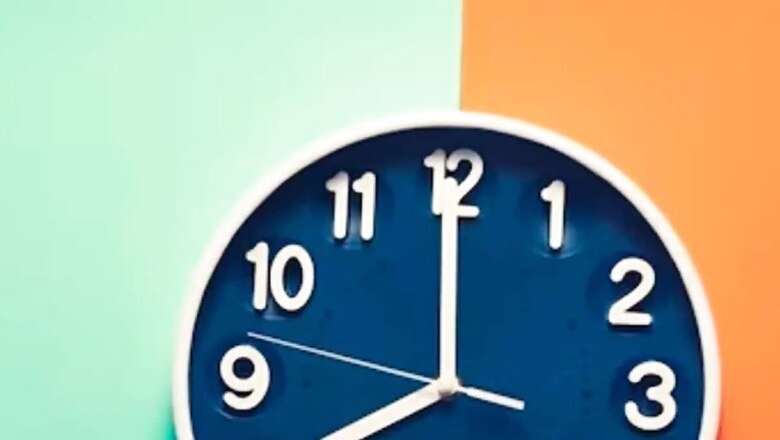
views
Ever wondered what the “o” in “o’clock” meant? asked someone on Threads, a social media platform, leaving everyone baffled. However, only a handful were aware of why it was called so. The letter “o” was associated with several meanings, including “zero,” “Omega” and “oida,” which is Viennese for “old person.” But several people figured out what the true meaning was.
So what is the origin of this expression?
When people first started telling the time, they used a variety of methods, which is where the word “o’clock” originated. The clock was one of them.
People used a number of methods to tell the time in the 12th century when clocks were not as common. The sun was employed as a reference point. But, sun time differed from clock time and was seasonal. Nevertheless, in contrast, clocks split time equally.
To indicate that someone was speaking of clock time (as opposed to solar time), the phrase “o’clock” was employed.
For instance, they would say, “It’s nine of the clock,” which eventually turned into “nine o’clock.”
According to Gizmodo, the use of the form “o’clock” gained further traction in the 18th century during which it became popular to slur the names of various objects, such as “Will-o’-the Wisp” from “Will of the Wisp” and “Jack-o’-lantern” from “Jack of the lantern.”
The term “o’clock” has persisted even though it is no longer required to explicitly state that we are referring to time from clocks in most situations due to the rarity of persons determining the time by the position of the sun.
But there are other expressions that are often used without knowing what the “o” stands for, such as “OK” or “okay.”
Although the origin of OK is disputable, the majority of contemporary reference books maintain that it came from Boston during the late 1830s misspelling fad and that it is an initialisation of “oll korrect,” which is a misspelling of “all correct.”
“OW” was another term that was abbreviated during that period. “All right” became “O.W.,” which was a misspelling for “oll wright.”



















Comments
0 comment